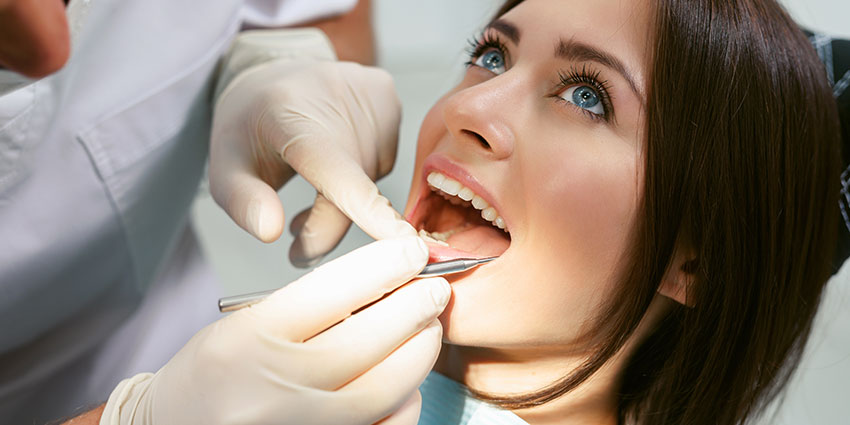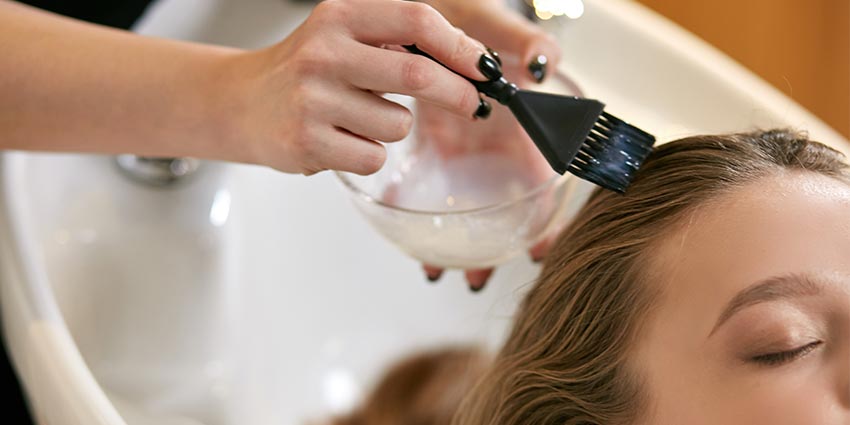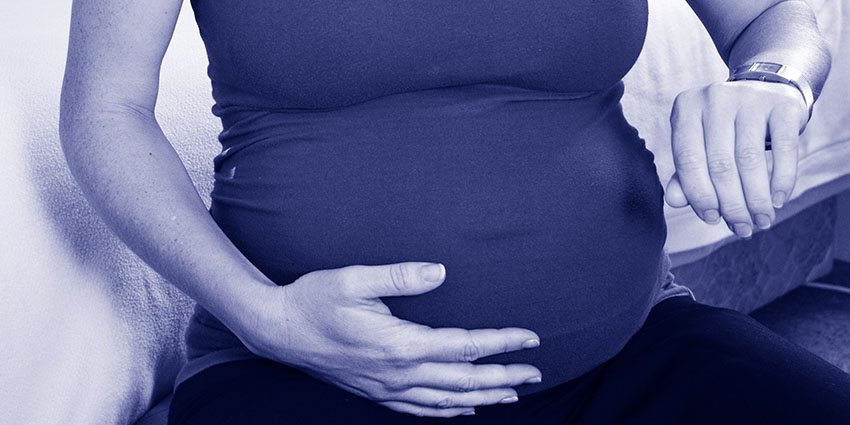A Comprehensive Guide for Optimal Dental Health for Expectant Mothers
Embracing Oral Health During Your Journey to Motherhood
Pregnancy is a time of joy and anticipation, but it also demands special attention to your oral and general health too. The importance of dental care during pregnancy cannot be overstated. It’s not just about maintaining your smile; it’s about protecting the health of you and your baby. Hormonal changes during pregnancy can affect your gums and teeth in ways you might not expect, making dental care more crucial than ever.
A Vital Conversation: Sharing Your Pregnancy News with Your Dentist
From the moment you suspect you’re pregnant, or have that positive test in hand, make it a priority to inform your dental professional. Knowing about your pregnancy helps your dentist tailor treatments and advice, ensuring the safety and well-being of both you and your developing baby. Your dental team is a part of your pregnancy journey, equipped to adjust care and provide the best support for your oral health.
The Importance of Regular Dental Visits
Securing Oral Health for Two: Why Regular Check-Ups Can’t Wait
Regular dental check-ups and appropriate dental treatment play a pivotal role in maintaining optimal health during pregnancy. One of every four women of childbearing age has untreated dental cavities. These visits are not just about preventing cavities; they are about ensuring a healthy oral environment that supports your overall health and that of your baby. Dental professionals universally agree on the significance of dental exams and treatments during pregnancy, advocating for routine that health care providers, as a non-negotiable part of prenatal wellness. Emphasizing the importance of routine dental care and treatment is essential, as it is a critical component of prenatal wellness, ensuring the safety and addressing the susceptibility of pregnant women to oral health conditions.
Destroying Myths: Dental Care During Pregnancy hormones
There’s a plethora of myths surrounding dental care in pregnancy, from the misconception that dental treatments are unsafe to fears about x-rays. It’s crucial to understand that most dental procedures, including cavity fillings and cleanings, are not only safe but recommended. Modern dental practices and technologies ensure that treatments like x-rays are extremely low in radiation, with additional precautions like lead aprons to protect you and your baby.
Expert Consensus: A United Front in Prenatal Care
Healthcare professionals across the board — from obstetricians to dentists — emphasize the importance of oral health during pregnancy. Regular dental visits allow for the early detection and management of pregnancy-related dental issues, such as gingivitis, ensuring they don’t escalate into more significant dental problems elsewhere.
Key Takeaways for Expectant Mothers:
- Inform your dental team about your pregnancy as soon as possible.
- Continue regular dental check-ups and cleanings throughout your pregnancy.
- Communicate any changes in your oral health or discomfort to your dentist immediately.
By prioritizing dental health and debunking common misconceptions, expectant mothers can ensure a healthier pregnancy and pave the way for their baby’s well-being. Regular dental visits, informed by open communication with your dental care provider, are essential steps in nurturing a healthy smile for two.
Understanding Hormonal Changes and Oral Health
Navigating the Tides of Change: Hormones and Gum Health
Pregnancy brings a wave of hormonal changes that can have a surprising impact on your oral health, particularly your gums. These hormones can exaggerate your body’s response to plaque, leading to pregnancy gingivitis — a condition marked by inflammation, swelling, and tenderness of the gums. This heightened sensitivity can lead to discomfort and, in some cases, bleeding during brushing or flossing. Beyond gingivitis, pregnant women are at an increased risk of oral health problems, including the risk of premature birth, gum disease, and tooth erosion. It’s crucial to assess and address these oral health issues as part of prenatal care to safeguard the health of both the mother and baby.
Bleeding Gums: A Common Concern
It’s not unusual for expectant mothers to experience gum bleeding due to these hormonal fluctuations. This symptom is a sign that your gums need extra attention and care during this critical time.
- Safeguarding Your Smile: Tips for Healthy Gums
- Gentle but Thorough: Opt for a soft-bristled toothbrush and use gentle, circular motions to clean your teeth and gums.
- Floss with Care: Daily flossing helps remove plaque between teeth, reducing the risk of inflammation.
- Rinse Wisely: Consider using an alcohol-free antimicrobial mouthwash to help reduce plaque and gingivitis.
- Stay Hydrated: Drinking plenty of water helps maintain saliva production, which naturally cleanses the mouth and gums.
- Regular Check-Ups: Keep up with your dental visits for professional cleanings and personalized advice.
Dealing with Morning Sickness: Oral Health Challenges
Morning Sickness and Your Mouth: A Delicate Balance
For many women, morning sickness is an unwelcome companion during pregnancy, bringing with it a challenge for oral health and tooth loss. The increased acidity in the mouth from vomiting can attack tooth enamel, leading to erosion and sensitivity.
Protecting Your Enamel: Strategies Against Acid Erosion
- Rinse, Don’t Brush: Immediately after vomiting, rinse your mouth with water or a diluted mouth rinse to neutralize acids. Wait at least 30 minutes before brushing to avoid damaging softened enamel.
- Baking Soda Solution: Rinsing with a mixture of baking soda and water can help neutralize stomach acid in the mouth.
- Fluoride Support: Use fluoride toothpaste and consider a fluoride mouthwash to strengthen enamel and resist acid attacks.
- Dietary Choices: Eat foods low in acid and high in calcium and phosphate to support enamel health.
Adapting Your Dental Hygiene Routine
Adjusting your dental care routine can make a significant difference in managing the oral health challenges posed by morning sickness. By taking proactive steps to neutralize acidity and protect your enamel, you can maintain a healthy smile throughout your pregnancy.
The Significance of Oral Hygiene Practices
Elevating Oral Care: A Must for Expectant Mothers
Maintaining impeccable oral hygiene is paramount, especially during pregnancy. The changes your body undergoes can directly impact your oral health, making regular brushing and flossing not just routine but essential to prevent conditions such as dental caries, gingivitis, and periodontitis. Regular brushing and flossing are also linked to the improvement of maternal oral health, highlighting their importance in prenatal care.
A Strong Foundation: Brushing and Flossing
Brushing twice a day with fluoride toothpaste and daily flossing remove plaque and prevent gingivitis, the first stage of gum disease. Pregnancy increases the risk of gingivitis, making these practices non-negotiable.
- Adapting Your Routine: Pregnancy-Friendly Modifications
- Soft Touch: If you’re experiencing gum sensitivity, switch to a soft-bristled toothbrush.
- Timing Matters: After episodes of morning sickness, rinse your mouth and wait before brushing to protect your enamel.
- Floss with Care: Gentle flossing is key to avoiding irritation while still cleaning effectively between teeth.
Fortifying Your Defenses: Fluoride and Antiseptics
Fluoride toothpaste strengthens tooth enamel and helps prevent tooth decay. During pregnancy, consider supplementing with a fluoride mouthwash for an extra layer of protection. Antiseptic mouthwashes can also play a vital role in controlling plaque and reducing gingivitis, contributing to a healthy oral environment for both you and your baby.
Navigating Dental Procedures During Pregnancy
Dental Care During Pregnancy: What’s Safe and What to Postpone
Understanding which dental procedures are safe during pregnancy and which should be deferred can help you navigate your oral health care confidently during this special time. It’s crucial to be aware of the risks associated with poor oral health during pregnancy, as it can potentially affect the pregnancy outcome. Untreated oral health problems may increase the risk of preterm birth, highlighting the importance of safe dental care to mitigate such risks.
Green Light for Routine Care
Routine dental check-ups, cleanings, cavity fillings, and even root canal treatments are considered safe and essential during pregnancy. These procedures are crucial for preventing infections that could affect your overall health and pregnancy.
Navigating Elective Procedures
Elective procedures, such as cosmetic dentistry, are typically postponed until after delivery to avoid any unnecessary risks.
Safety First: Precautions and Protections
Dental professionals take extra precautions to ensure the safety public health of pregnant patients:
- Lead Aprons for X-Rays: Modern dental X-rays are extremely low in radiation. When necessary, a lead apron minimizes exposure to both you and your baby.
- Careful Use of Anesthetics: Local anesthetics, especially lidocaine, are considered safe during pregnancy. Your dentist will use the smallest effective dose for any procedures requiring anesthesia.
- Informed Decisions: Communicating with Your Dental Team
Always inform your dental team about your pregnancy and any medications you are taking. This information helps them customize your care, ensuring the safety and well-being of both you and your developing baby.
Frequent Cleanings: A Preventative Approach
Doubling Down on Cleanliness: The Case for More Frequent Dental Cleanings During Pregnancy
Pregnancy isn’t just a time to anticipate the arrival of your little one; it’s a period that demands heightened vigilance in all aspects of your baby’s health and care, including oral hygiene. The hormonal fluctuations that accompany pregnancy can lead to an increased risk of periodontal disease and gingivitis, making additional dental cleanings a wise preventative strategy.
Why More Is More: The Logic Behind Additional Cleanings
The increased risk of gum disease during pregnancy is well-documented, with the American Dental Association noting that pregnant women are more prone to periodontal issues. More frequent cleanings can help manage this risk, removing plaque and tartar build-up that daily brushing and flossing might miss.
The Protective Benefits of Frequent Cleanings
Regular dental cleanings during pregnancy can:
- Reduce Inflammation: Help keep gum inflammation and tenderness at bay.
- Prevent Gum Disease: Lower the risk of developing pregnancy gingivitis and more severe forms of periodontal disease.
- Catch Issues Early: Allow your dentist to detect and address oral health issues before they become serious.
Scheduling Success: Managing Dental Appointments During Pregnancy
- Timing Matters: Aim for cleanings during your second trimester when possible, as this is often the most comfortable time for dental work.
- Communicate Clearly: Keep your dental office informed about your pregnancy and any changes in your health.
- Follow Professional Guidance: Trust your dental team’s advice on the frequency of cleanings, tailored to your specific needs.
Conclusion: Prioritizing Dental Health for Two
A Healthy Smile for Mother and Child: The Imperative of Prenatal Oral Care
As we’ve explored, dental care during pregnancy goes beyond personal dental health problems; it’s a vital part of prenatal care that benefits both mother and child. The journey of pregnancy introduces specific oral health challenges, from hormonal changes affecting gum health to the impacts of morning sickness on enamel. Addressing these with regular dental visits, frequent cleanings, and tailored oral hygiene practices is essential.
Open Lines, Healthy Smiles
Maintaining open communication with your dental care provider is crucial. By sharing updates about your pregnancy and any concerns you have, you enable your dental team to offer the most effective, safe, and comfortable care possible.
A Safe, Necessary Part of Pregnancy Care
Let’s summarize: dental care during pregnancy is not just safe; it’s indispensable. With the right precautions and a proactive approach to oral hygiene, you can protect not just your health, but the well-being of your baby. Prioritize your dental health as part of your comprehensive prenatal care strategy, ensuring a healthy smile that lasts long beyond these nine transformative months.
Frequently Asked Questions (FAQ)
Is it safe to go to the dentist while pregnant?
Yes, it is safe to go to the dentist while pregnant. In fact, it’s highly recommended. Pregnancy can lead to dental problems in some women, including gum disease and increased risk of tooth decay. Due to these risks and the fact that oral health significantly impacts overall health, regular dental visits are crucial. Dentists can take all necessary precautions to ensure the safety of both the mother and the developing baby, such as using lead aprons during X-rays and avoiding certain medications.
What dental procedures are safe to undergo during pregnancy?
Most routine dental procedures are safe during pregnancy. This includes dental checkups, cleanings, cavity fillings, and crowns. Emergency procedures, such as those for alleviating pain and infection, are also safe and important for maintaining the health of the mother and baby. Non-emergency procedures, like cosmetic dentistry, are generally postponed until after delivery.
Why is dental care particularly important during pregnancy?
During pregnancy, hormonal changes can increase the risk of oral health issues such as gum disease and tooth decay. These conditions cause discomfort. Rarely, infection can develop which poses risks to the baby’s health, including preterm birth. Good oral hygiene and regular dental visits during pregnancy are vital to manage these changes effectively and ensure both the mother’s and baby’s well-being.
Do pregnant women receive free dental care?
Sometimes, pregnant women are eligible for free dental care as part of prenatal health programs. The availability of such benefits often depends on the national health care system or insurance policies. It’s important for expectant mothers to inquire with their health insurance provider or local health department about eligibility for free dental services during pregnancy.
What are common dental conditions that can occur during pregnancy?
Common dental conditions during pregnancy often cause swelling, bleeding, and pain. These conditions include gingivitis (inflammation of the gums), pregnancy tumors called pyogenic granuloma (non-cancerous growths in the mouth), and periodontitis. Pregnant women may also experience increased tooth sensitivity and erosion due to acid from frequent vomiting if suffering from morning sickness.
Which dental treatments should be avoided until after pregnancy?
While most routine treatments are safe, elective procedures such as teeth whitening and other cosmetic surgeries are typically postponed until after delivery. Additionally, dental treatments that require medications not proven safe during pregnancy should be avoided unless absolutely necessary.
How does pregnancy impact the timing and type of dental treatments?
Pregnancy does not necessarily limit the ability to receive dental care, but timing and types of treatments might be adjusted to enhance safety. The second trimester is generally considered the safest period for dental procedures. During the first trimester, when the baby’s major organs are developing, non-emergency procedures are often postponed to avoid any potential risks.
How often should I schedule dental checkups during pregnancy?
Pregnant women should continue with routine dental checkups typically recommended every six months. However, more frequent visits may be necessary if any issues such as gum disease or frequent vomiting occur, which might affect oral health.
What symptoms indicate pregnancy gingivitis?
Symptoms of pregnancy gingivitis include swollen, red, tender, and bleeding gums. These symptoms result from an enhanced inflammatory response to dental plaque due to hormonal changes and should be addressed by a dental professional.
Can dental health issues during pregnancy affect my baby’s health?
Yes, severe dental health issues like periodontitis (a serious gum infection) can affect the baby’s health. Research suggests a link between periodontitis and preterm birth as well as low birth weight. Maintaining good oral hygiene and addressing dental problems promptly during pregnancy is crucial.
What should I do to manage morning sickness without damaging my teeth?
After episodes of morning sickness, rinse your mouth with water or a fluoride mouthwash to neutralize stomach acids. Avoid brushing immediately after vomiting to prevent acid erosion of the enamel. Instead, wait at least 30 minutes before brushing.
Are dental X-rays safe during pregnancy, and what precautions are taken?
Dental X-rays are considered safe during pregnancy when necessary precautions are taken, such as using a lead apron to shield the abdomen. Modern dental X-ray machines emit extremely low levels of radiation.
What preventive steps can I take to avoid gum disease during pregnancy?
To prevent gum disease, maintain meticulous oral hygiene practices including brushing twice a day, flossing daily, and using an antimicrobial mouthwash. Regular dental cleanings are also essential to remove plaque and tartar that brushing and flossing might miss.
Related Posts







